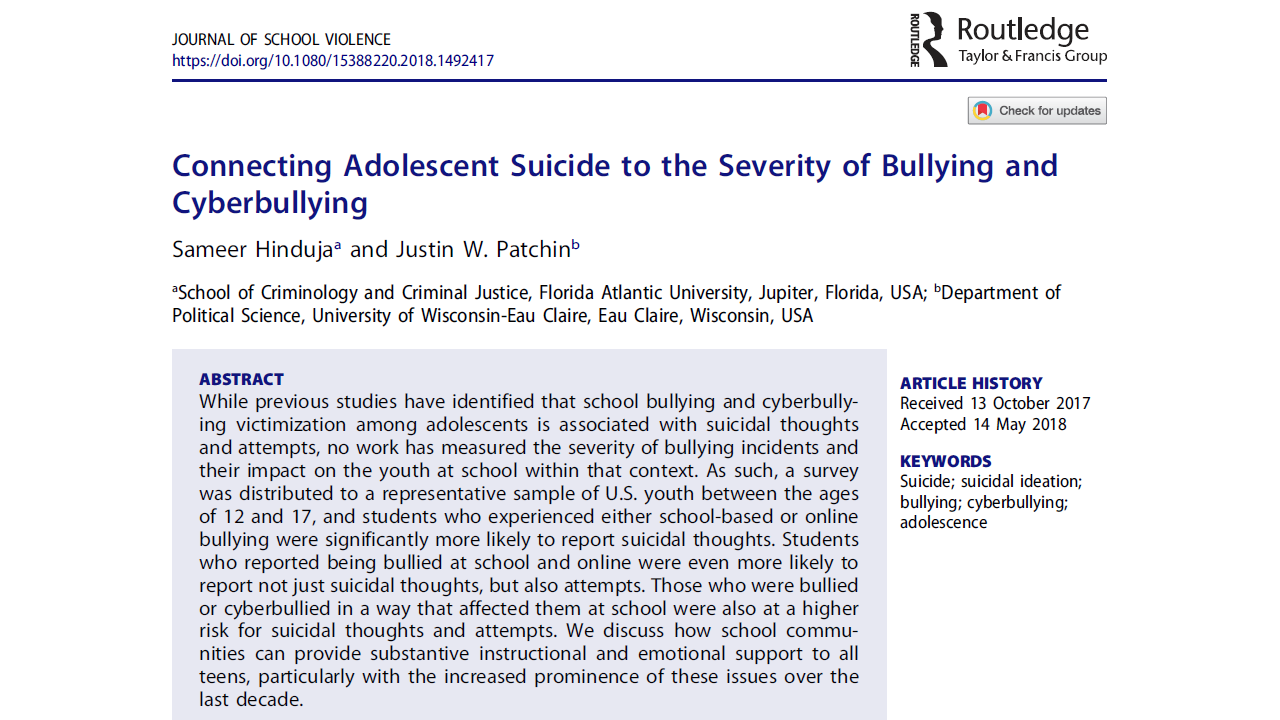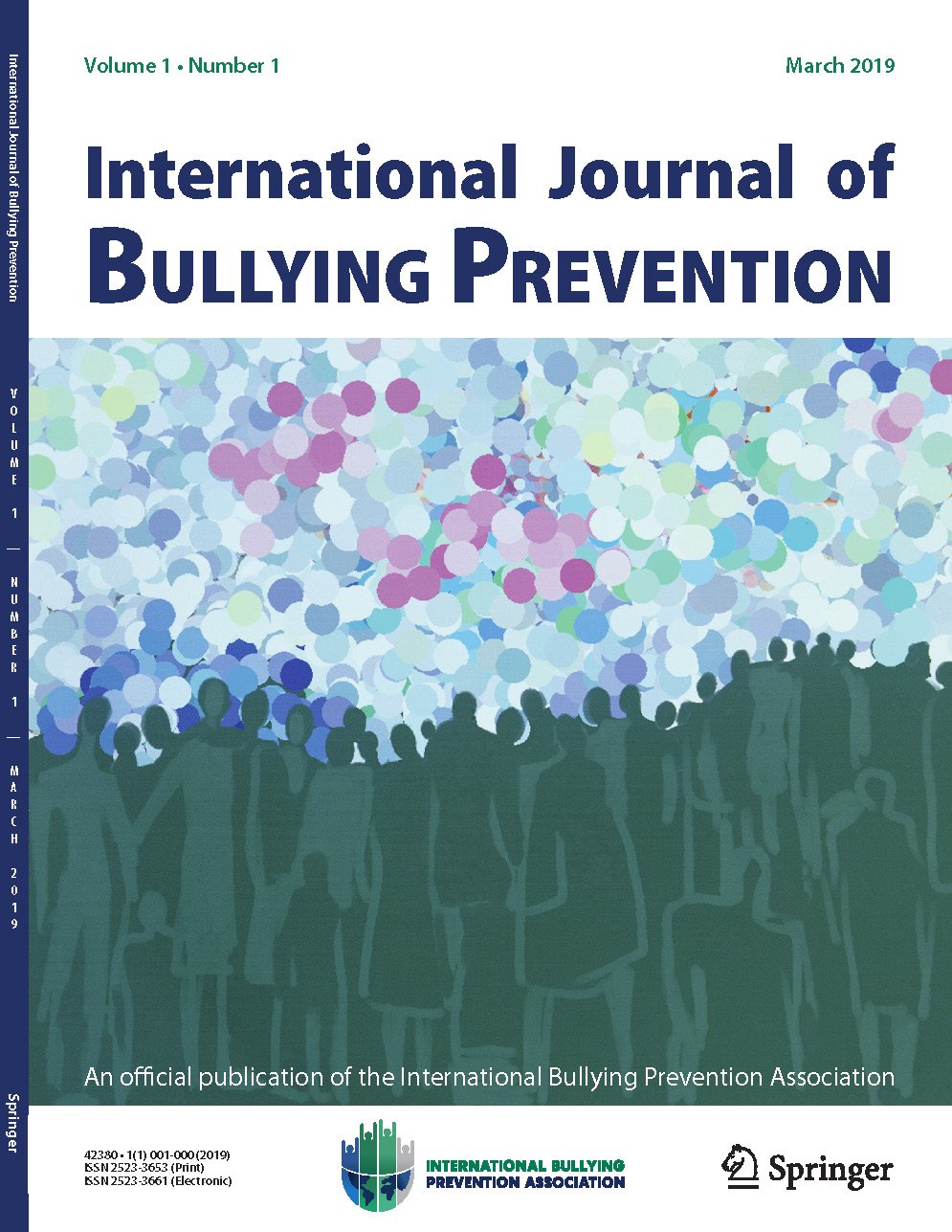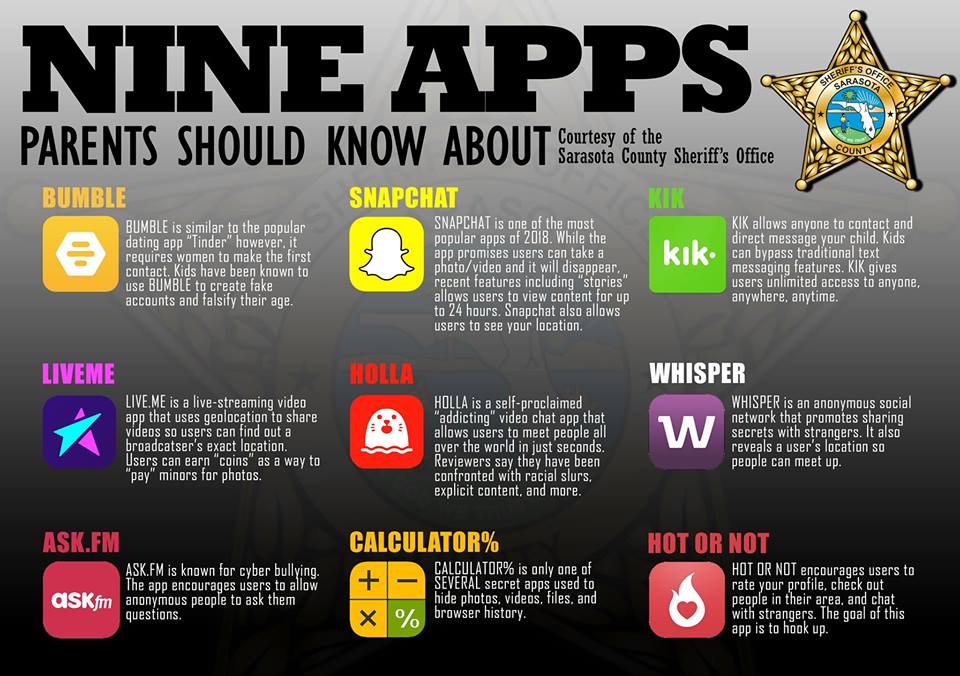Read the latest news and brand new pieces on youth, social media, and emerging technologies! We focus on preventing harm and promoting positive online behaviors.

The Skinny on Screen Time: Common Sense Over Research (at least for now)
There has long been a fervent debate about the potential impacts of screen time on youth. When our son was born in 2010, the American Academy of Pediatricians recommended no screen time for children under the age of two. The guidelines have softened a bit in recent years, but the group still generally promotes less […]

Authoritative School Climate: The Next Step in Helping Students Thrive
I’m always on the lookout for innovative approaches to improve student well-being and to create healthy, thriving communities – whether online or on campus. And as you know, Justin and I have examined a number of factors over the years which affect the experience of youth during their journey through adolescence. School climate has been […]

Sextortion Among Adolescents
Thirteen-year-old Amanda Todd made a mistake. The British Columbia teen had just moved to a new town and turned to the Internet to meet people. She’d been chatting online with a man whom she’d become interested in. He said she was pretty. After more than a year of communicating with the man, he convinced her […]

Are “Gamers” More Likely to be “Bullies”?
Conventional wisdom and media headlines would have one believe that those who play video games are more at risk for engaging in a host of anti-social behaviors. There is certainly nothing new about this mentality: It was prominent in my 80s-era adolescence as well. I remember spending many hours playing Mortal Kombat on the classic […]

Bullying, Cyberbullying, and Suicide Among US Youth: Our Updated Research Findings
There continues to be a lot of discussion involving bullying, cyberbullying, and suicide both in the media as well as in social circles of parents, educators, and other youth professionals. I just looked up “suicide and bullying” on Google News and in just this past weekend alone there are multiple stories involving different kids in […]

International Journal of Bullying Prevention
As a cyberbullying scholar, I engage in research related to its identification, prevention, and response and seek to get articles based on this research published in academic journals. By doing so, we can contribute to the extant knowledgebase concerning what we know about cyberbullying, inspire other researchers to advance the proverbial ball, equip educators, mental […]

Federal Commission on School Safety
Yesterday, I testified on “cyberbullying and social media” in front of the Federal Commission of School Safety, chaired by Secretary Betsy DeVos and comprised of Secretary Kirstjen Nielsen (Homeland Security), Secretary Alex Azar (Health and Human Services), and Attorney General Jeff Sessions. Collectively, they are trying to garner insight on the ecology of schools and […]

Empower and Educate, Don’t Just Create Panic
Last weekend a Facebook post by the Polk County (Florida) Sheriff’s Office went viral. As of this writing (less than a week later), the post had been shared more than 58,000 times (including by three of my personal Facebook friends, which is how I came to notice it). This wasn’t a post asking for the […]

Student Experiences with Reporting Cyberbullying
Most students who are bullied do not report their experiences to adults. This was true 30 years ago when I endured middle school and our research shows it largely continues to this day. I remember being surprised (though maybe I shouldn’t have been) to learn from our first pilot study undertaken 15 years ago that […]

Emoji as Threats in Student Messages and Social Media
When we speak to students in schools across the nation, we always focus on the positives of social media while also sharing case studies to underscore the reminder they frequently need to hear: “pause before you post.” While there are numerous examples of students missing out on college and university slots, scholarships, and employment opportunities […]

